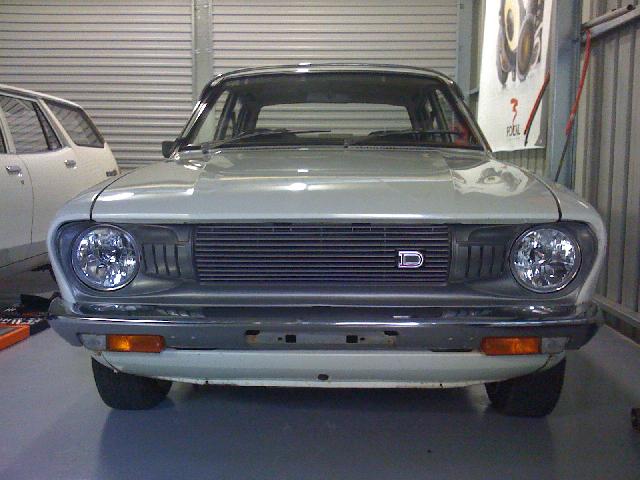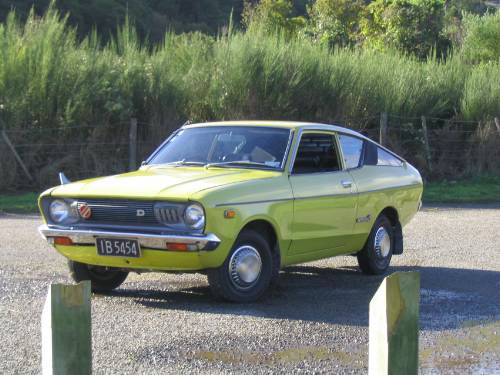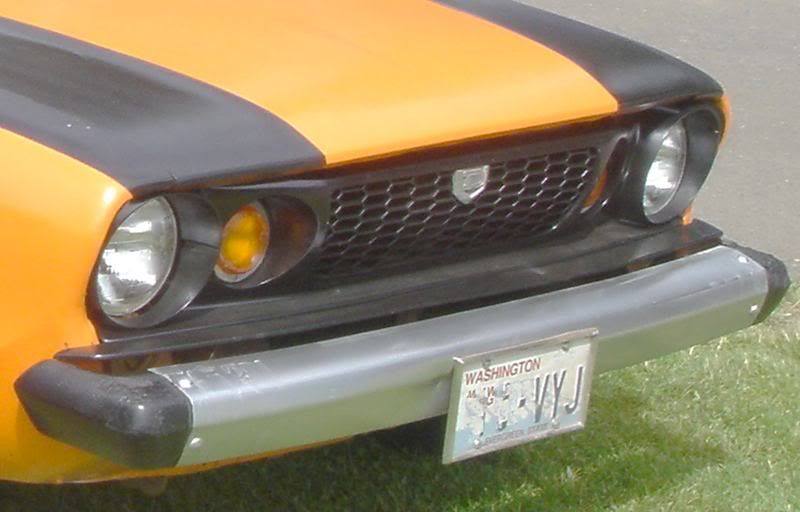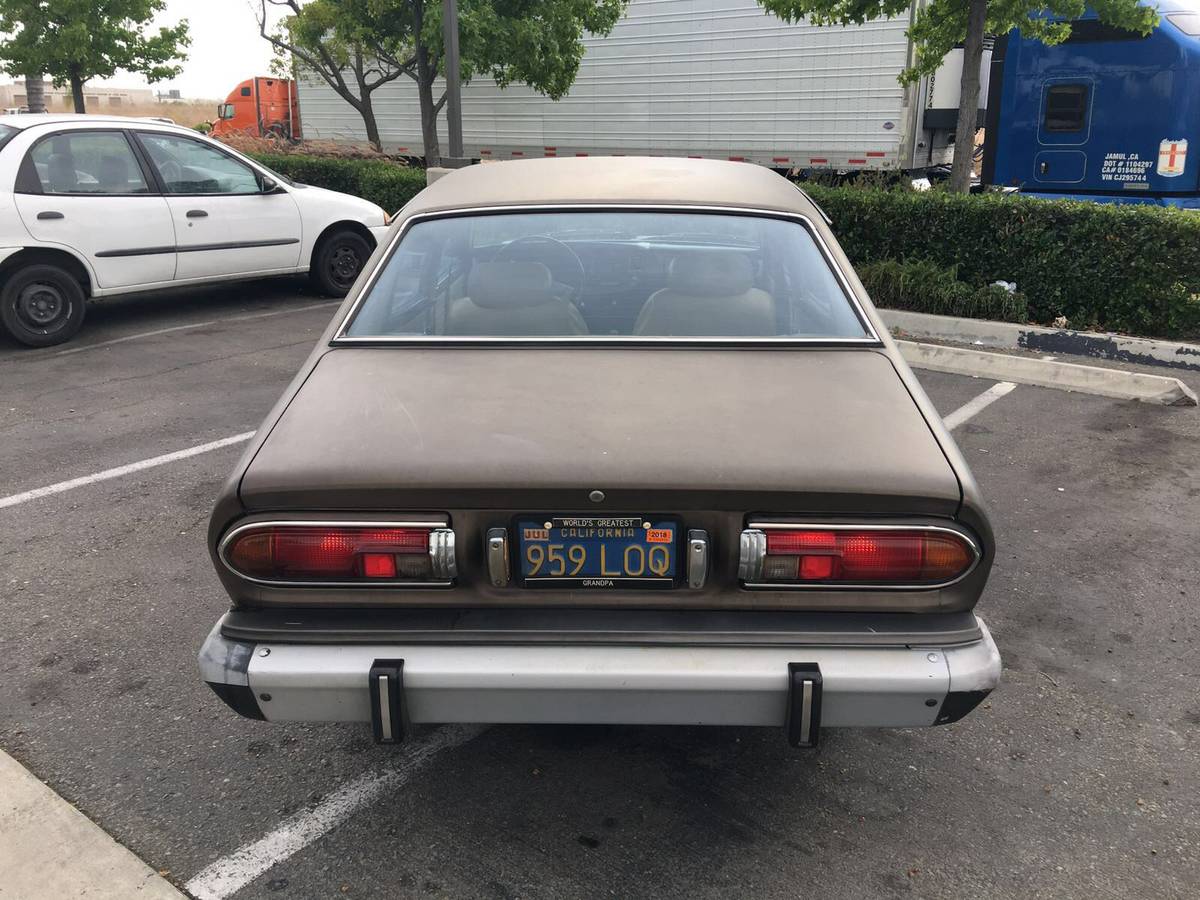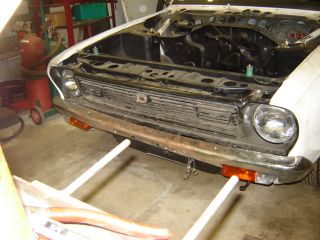| Revision as of 05:36, 19 July 2019 ddgonzal (Talk | contribs) (->Wide Plate) <- Previous diff |
Revision as of 07:11, 19 July 2019 ddgonzal (Talk | contribs) (->No Cutout) Next diff -> |
||
| Line 44: | Line 44: | ||
| 3-piece bumper with rubber and metal overriders | 3-piece bumper with rubber and metal overriders | ||
| - | = No Cutout = | + | === No Cutout === |
| Wagon uses 3-piece bumper (straight bar with bolt-on ends). Has no plate cutout as the number plate mounts above the bumper. | Wagon uses 3-piece bumper (straight bar with bolt-on ends). Has no plate cutout as the number plate mounts above the bumper. | ||
| <br>{{Album|27250}} {{Album|12583}} | <br>{{Album|27250}} {{Album|12583}} | ||
Revision as of 07:11, 19 July 2019
North American B210s have "park bench" safety bumpers capable of 5 mph collision without damage. Other countries use a stylish chrome small bumper.
Contents |
Worldwide Style
Front
H5000 -7701 H7400 7702- H5800 L16
with upper overrider bar H7510 A14T twin carb H7512 *A14T.GX 7702-
overriders 7702-, except DX
PB210/GB211.early (no overrider)

GB211.from_7702 H58 (with overrider)

H50 Front bumpers stays -- All years A12/A14 JAPAN (H58 is for L14/L16)

Rear
Some countries used a narrow license plate cutout (e.g. Japan) and other countries used wide plate cutout (e.g. Australia)
Wide Plate
Sedan bumper is a plain steel one-piece type. non-Japan

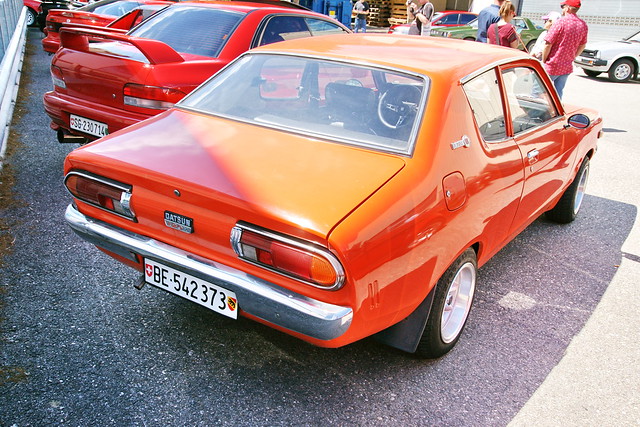
Coupe has cutout for rear reflector. Japan Coupe uses wide plate version.
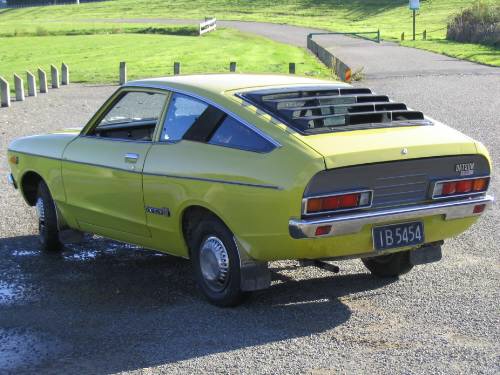
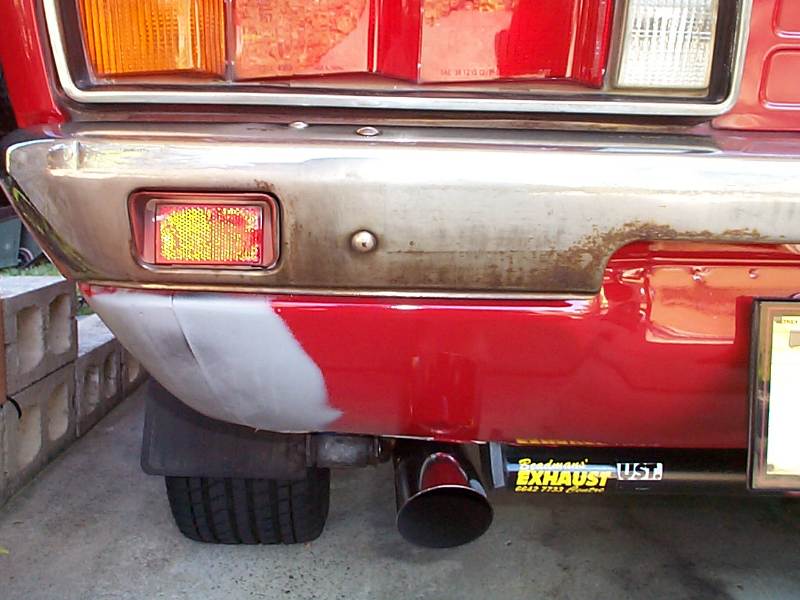
Japan KB210.A12 carriage boltsT Japan KB210.A14 rubber overriders
World Bumper doesn't quite cover holes on North America rear body

A14T
85010-H7516 7702- OPTION K.A14T 3-piece bumper with rubber and metal overriders
No Cutout
Wagon uses 3-piece bumper (straight bar with bolt-on ends). Has no plate cutout as the number plate mounts above the bumper.
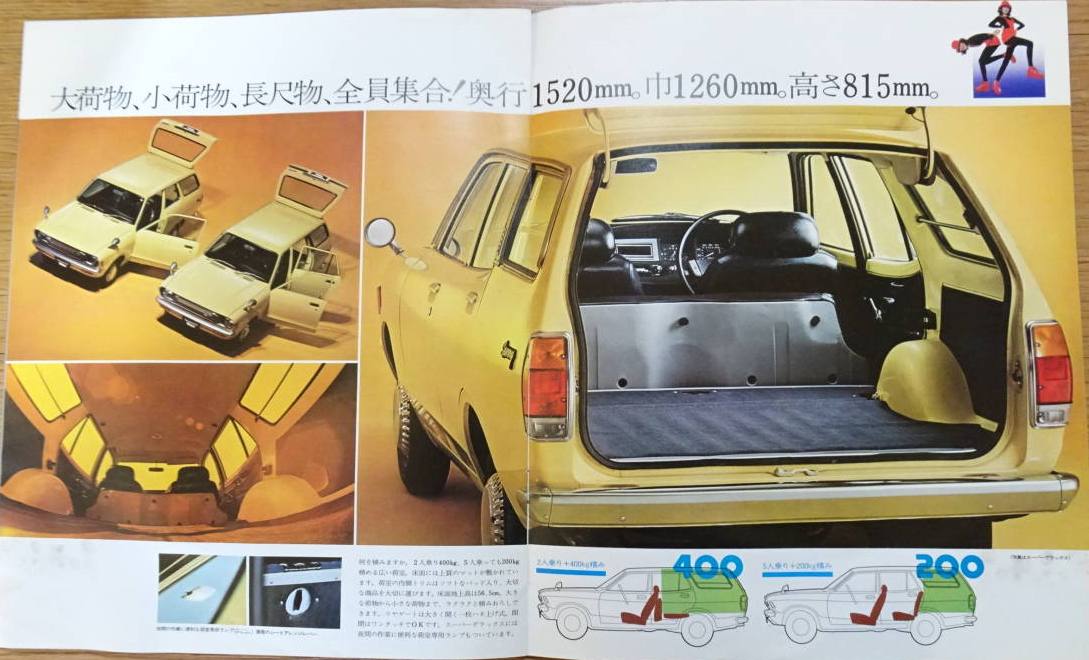

BUMPER ASSY-REAR COUPE 85010-H5500 -7701 85010-H7405 7702- SEDAN 85010-H5000 -7701 85010-H7405 7702-
Narrow Plate
North America
USA and Canada market. For 1974, USA models got large bumpers to meet Federal Motor Vehicle Safety Standards regulation 215(b). The mandate that created the "park-bench" bumpers were not about safety, but part of the Cost Saving Act. The idea was to reduce the cost of repair of minor accidents (below 5 mph) and so benefit the consumer. For more details, see FMVSS 215.
Front North America
- 1974 non-chrome, no rubber overriders, black sight shield
- 1975 different color, rubber overriders, black sight shield
- 1976 chrome beam with rubber ends, rubber overriders, Coupe has body color-keyed rear sight shield.
- 1977-1978. The external appearance of the bumpers has been improved
1975 - non-chrome with overriders (grille in 2nd photo is 1978)
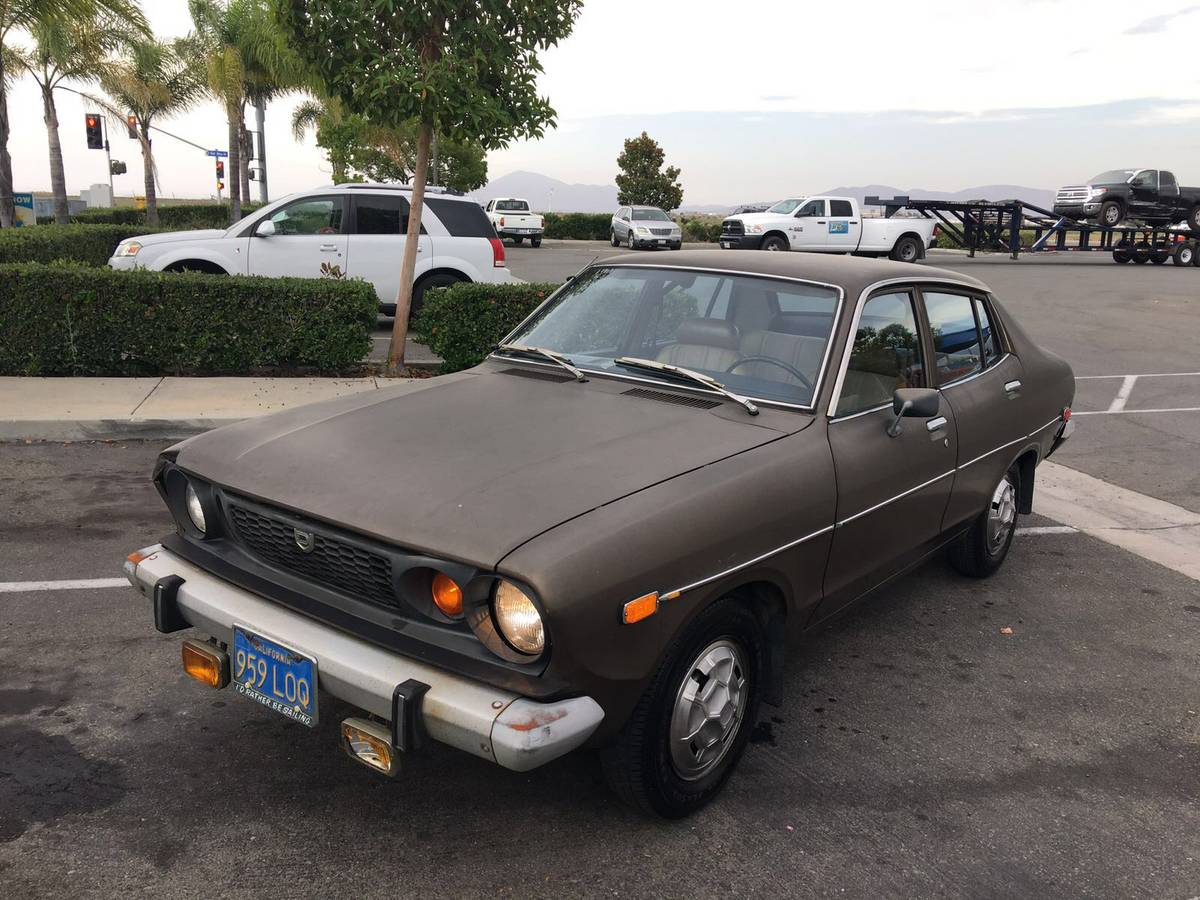
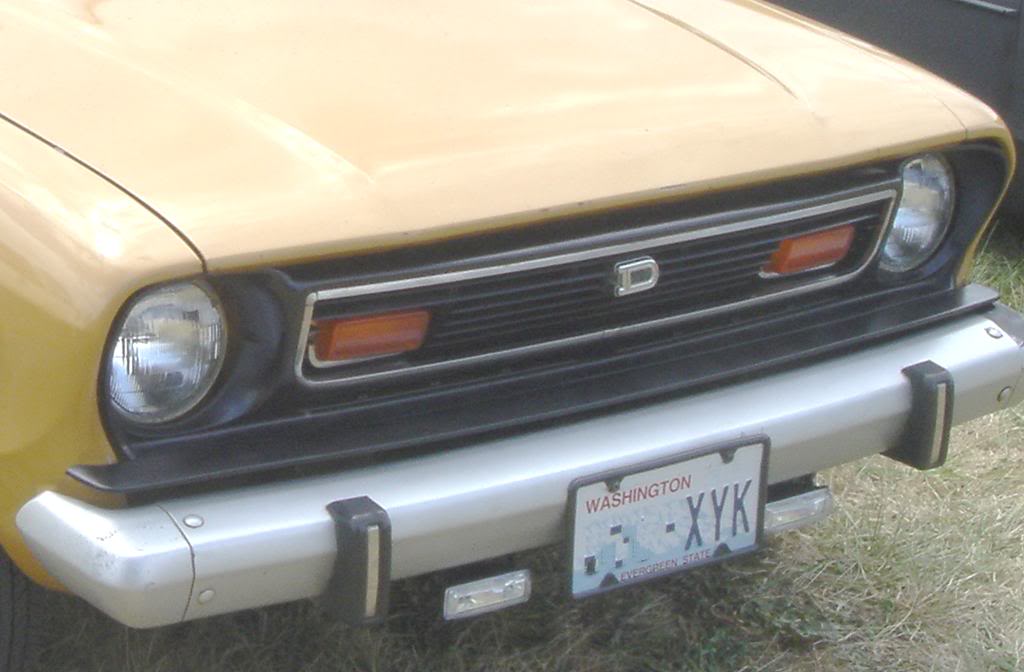
1976 - Chrome beam with many bolts (grille is 1977)

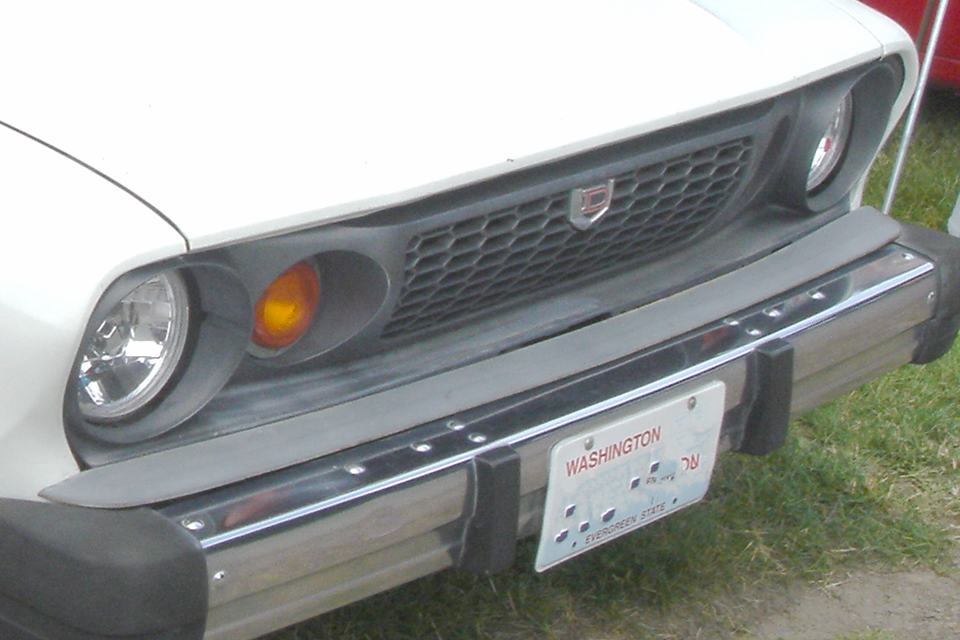
1977 - Chrome beam bumper with fewer bolts

Front sight-shield covers the gap between body and bumper
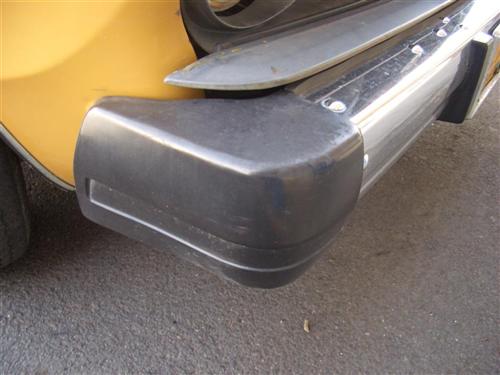
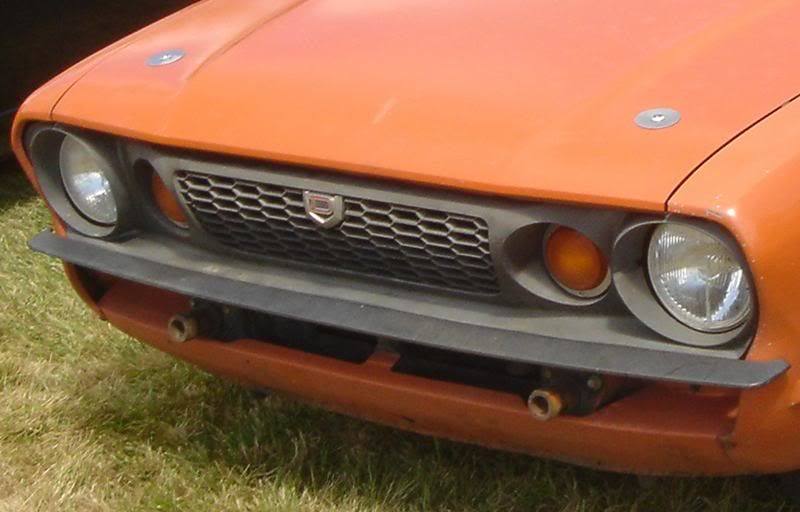
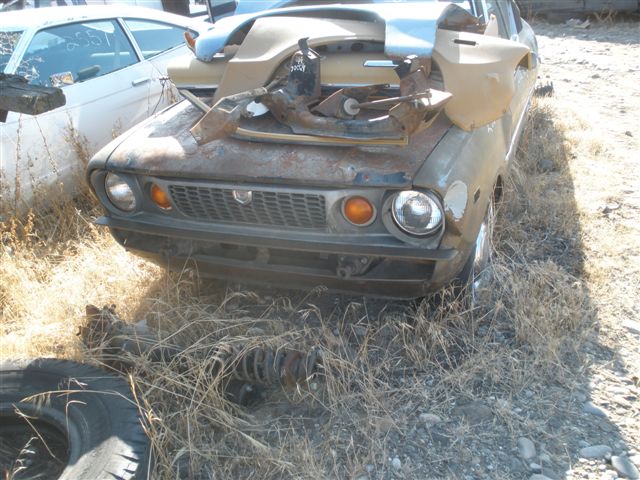
Rear North America
Rear panel
A rear panel is used in USA instead of a beaver panel.
- 1974-1975: body color-keyed
- 1976-1978 Sedan: body color-keyed
- 1976-1978 Coupe: black
Retrofitting Worldwide Bumpers
You will need make up new custom brackets to mount the bumpers.
SEDAN REAR: When fitting the smaller bumpers there's two holes, from where the 5mph bumper shocks/brackets mount. And the new bumper covers the top half of them. So a new beaver panel is not really needed.

USA: large holes. Worldwide: small holes


COUPE REAR: A new beaver plate should be fabricated.

NOTE: 1200 bumpers don't quite fit the B210. They need to be bent a little bit, and are narrower.
Barracuda sells B210 bumper in steel about $300
The wide-cutout bumper has just happens to line up perfectly the with lower valence on a North America B210, but the JDM bumper has a smaller plate cut-out, about the size of a US license plate. the JDM bumper makes for a cleaner install, but the wide-cutout bumper may be cheaper and easier to obtain out of Australia.

![[Datsun 1200 encyclopedia]](/wiki/upload/wiki.png)
